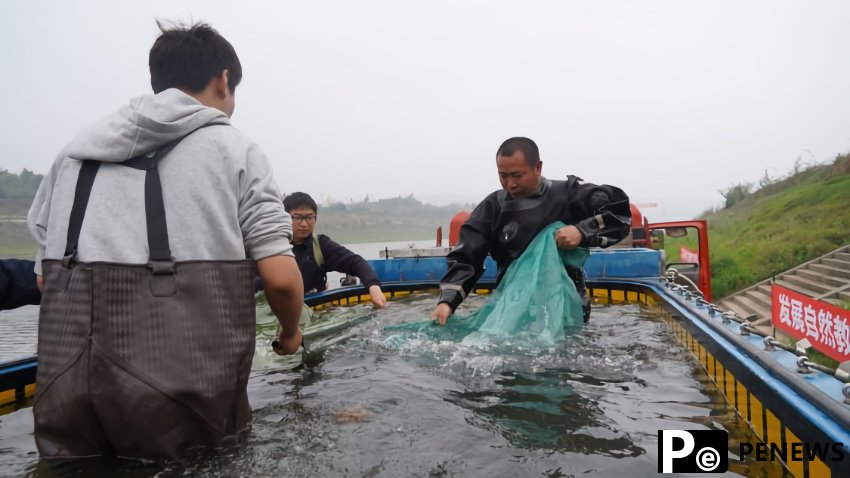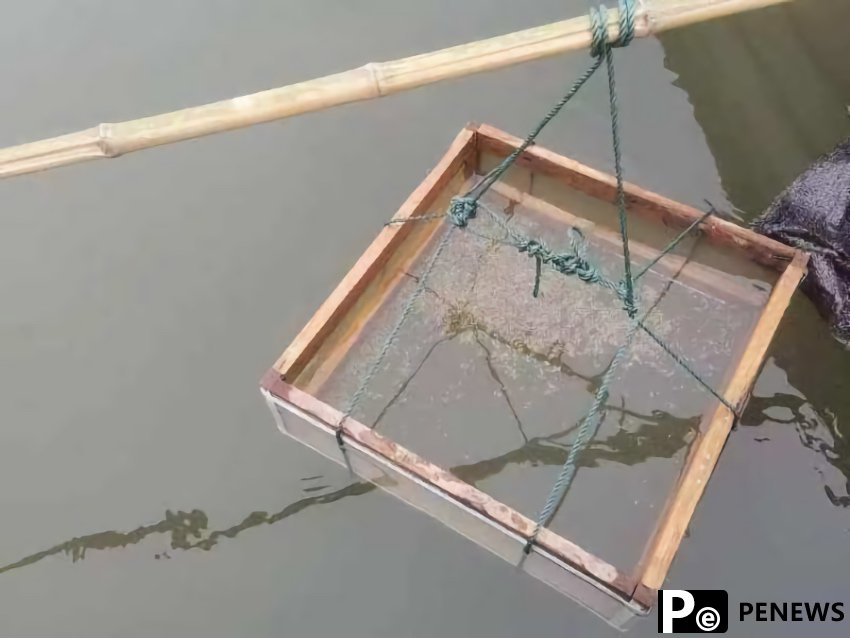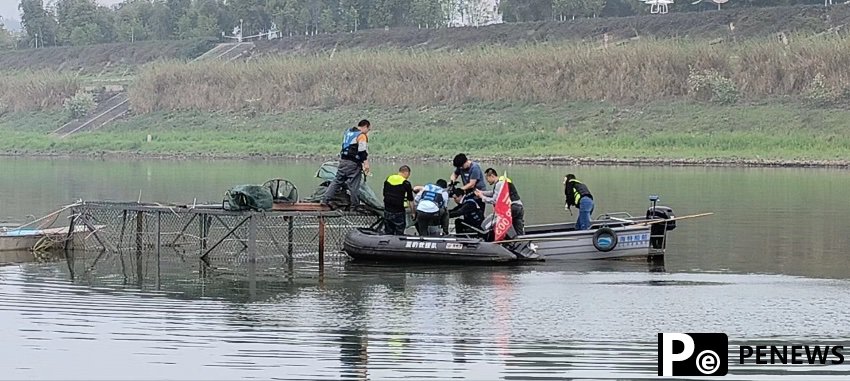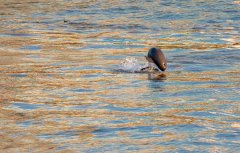Home>>
Breeding experiment proves to be successful as Yangtze sturgeon reproduces in the wild for first time in 23 years(People's Daily Online) 13:56, March 29, 2023
The Yangtze sturgeon, an endangered species under first-class state protection in China, recently laid eggs, which hatched into seedlings naturally in the wild for the first time in 23 years.
That’s what the results of a wild breeding experiment of the Yangtze sturgeon conducted in the section of the Yangtze River in Jiang'an county, southwest China's Sichuan Province showed on March 26.
"The seedlings are about 5 to 6 millimeters long," said Li Pengcheng, an assistant research fellow from the Yangtze River Fisheries Research Institute of the Chinese Academy of Fishery Sciences.

The wild breeding experiment of the Yangtze sturgeons is carried out in a simulated river environment. (Photo/ybtv.cc)
Li said the Yangtze sturgeons' ovulation and fertilization took place on March 21, and the first batch of seedlings were successfully hatched days later.
This is the first time in 23 years that the Yangtze sturgeons have laid eggs and hatched in the Yangtze River naturally. It reflects the success of the wild breeding experiment of the Yangtze sturgeon, Li said.
"The fertilization rate is above 50 percent. The process looks easy but we've actually made a lot of efforts over the past years to eventually be able to achieve this," said Du Hao, a research fellow from the Yangtze River Fisheries Research Institute of the Chinese Academy of Fishery Sciences.
The success of the experiment has erased doubts of the general public over the Yangtze sturgeon's ability to reproduce naturally, Du added.
One week before the Yangtze sturgeons finally reproduced naturally in the wild, researchers put 20 adult Yangtze sturgeons into a 45-cubic-meter artificial egg-laying nest and guided them to lay eggs in natural waters.

The Yangtze sturgeon eggs are protected for further observation. (Photo/ybtv.cc)
The Jiang'an section of the Yangtze River is part of the national nature reserve for rare fish in the upper stream of the Yangtze River. It is a traditional habitat and spawning ground for many rare fish, including Yangtze sturgeon.
Yangtze sturgeon lost their natural ability to reproduce in 2000 due to many factors. In July 2022, the International Union for Conservation of Nature declared the species extinct in the wild.
The success of the experiment has rekindled researchers' confidence in promoting natural reproduction of the Yangtze sturgeon and restoring their wild population, according to Du.

Researchers work in the water. (Photo/ybtv.cc)
(Web editor: Hongyu, Du Mingming)










